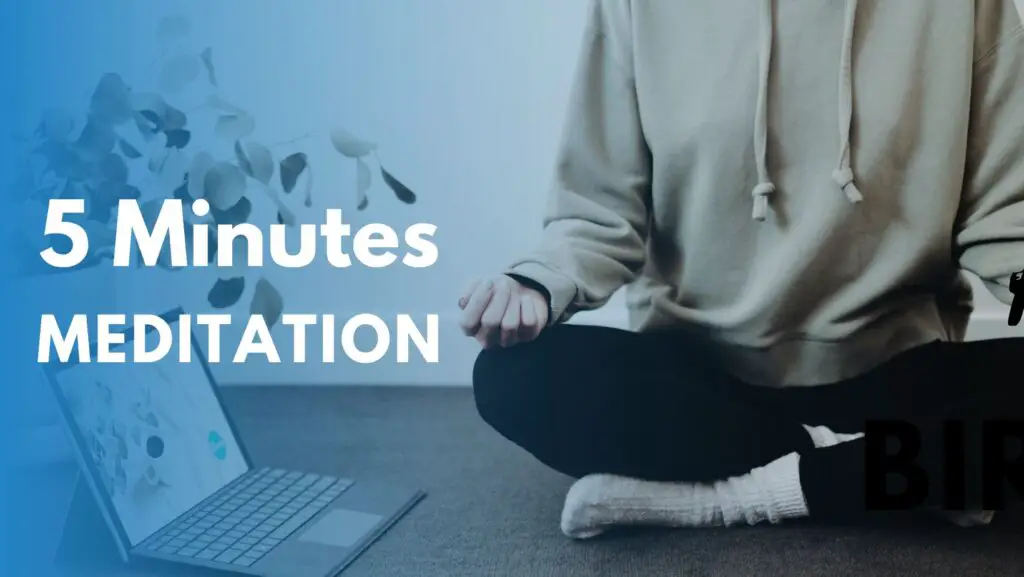In our fast-paced world filled with constant hustle and bustle, finding moments of tranquility becomes crucial for maintaining overall well-being. Amidst the chaos, meditation emerges as a powerful tool to bring balance and serenity into our lives. In this comprehensive exploration, we will delve deeper into the myriad benefits that dedicating a mere 20 minutes to meditation can bestow upon us, encompassing the transformative effects on our mental, emotional, and physical health.
20 minutes meditation benefits
Before we dive into the extended benefits, let’s take a moment to understand what meditation truly is. At its core, meditation is a practice that encourages mindfulness and presence. It involves focusing one’s attention on the present moment, often achieved through techniques like deep breathing, visualization, or mantra repetition.
The 20-Minute Meditation Routine:
Many individuals are daunted by the idea of meditation, thinking it requires hours of commitment. However, the beauty lies in its simplicity, and dedicating just 20 minutes a day can yield remarkable results. This manageable timeframe allows meditation to seamlessly integrate into our daily lives, making it an accessible practice for everyone.
- Enhanced Pain Management:
Research suggests that regular meditation can play a role in managing chronic pain. By fostering a mind-body connection and reducing stress, individuals may experience a higher pain tolerance and improved overall pain perception.
- Cultivation of Gratitude:
Incorporating gratitude practices within a meditation routine can enhance the overall experience. Spending a few minutes in contemplation, expressing thanks for positive aspects in life, contributes to a more positive mindset and emotional well-being.
- Mindful Eating Habits:
Meditation encourages a heightened awareness of the present moment, extending to daily activities such as eating. Taking 20 minutes to practice mindful eating can lead to healthier food choices, improved digestion, and a more conscious relationship with nourishment.
- Increased Productivity:
The focused attention cultivated through meditation often translates into increased productivity. By training the mind to resist distractions and stay present, individuals can approach tasks with heightened efficiency, leading to a more productive work and personal life.
- Improved Posture and Body Awareness:
Incorporating mindful awareness of the body during meditation promotes improved posture and overall body awareness. This can have long-term benefits, reducing the likelihood of musculoskeletal issues and enhancing physical well-being.
- Heightened Spiritual Connection:
For those on a spiritual journey, meditation can serve as a gateway to a deeper connection with oneself and the universe. Taking 20 minutes for a spiritual meditation practice can foster a sense of purpose, inner peace, and interconnectedness.
- Better Stress Resilience:
Meditation not only reduces stress in the moment but also contributes to long-term stress resilience. Regular practice equips individuals with the tools to navigate challenging situations with greater calm and adaptability.
- Enhanced Memory and Cognitive Function:
Scientific studies indicate that meditation can positively impact memory and cognitive function. The 20-minute commitment becomes an investment in long-term brain health, potentially reducing the risk of cognitive decline as we age.
- Promotion of Emotional Intelligence:
Meditation fosters emotional intelligence by encouraging the acknowledgment and understanding of one’s emotions. This heightened awareness allows individuals to respond to emotions more skillfully, leading to healthier emotional relationships.
- Encouragement of Lifelong Learning:The practice of meditation often instills a mindset of curiosity and openness. By embracing a daily routine, individuals may find themselves more inclined towards lifelong learning, exploring new interests, and embracing personal growth.
Conclusion:
In a world filled with constant stimuli, embracing the transformative benefits of 20 minutes of daily meditation becomes a gift to oneself. From stress reduction and improved focus to enhanced emotional well-being and better sleep, the positive outcomes are both tangible and profound. The journey to a more balanced and mindful life begins with a single breath and a commitment to the profound benefits of meditation. So, find a quiet space, take a comfortable seat, and allow yourself the luxury of 20 minutes of serenity each day. The path to a more enriching and purposeful life unfolds through the practice of meditation and the exploration of its multifaceted benefits.
People also looking for –
1. What happens if you meditate for 20 minutes?
- Meditating for 20 minutes can lead to various benefits such as reduced stress, increased mindfulness, improved focus, and a sense of calmness. Regular practice can contribute to long-term positive changes in mental and emotional well-being.
2. How do you meditate for maximum benefits?
- To maximize the benefits of meditation, find a quiet and comfortable space, focus on your breath or a chosen point of attention, let go of distractions, and practice regularly. Experiment with different techniques such as mindfulness, loving-kindness, or guided meditation to find what works best for you.
3. What happens after 30 minutes of meditation?
- Extending meditation to 30 minutes may deepen the state of relaxation and concentration. It allows for a more extended period of introspection and can lead to a heightened sense of awareness and tranquility.
4. What happens after 10,000 hours of meditation?
- The concept of 10,000 hours, often associated with expertise, may not directly apply to meditation. However, consistent long-term meditation practice can lead to profound changes in brain structure, improved emotional regulation, heightened self-awareness, and a deeper connection to the present moment.
5. Is 20 minutes of meditation enough?
- Yes, 20 minutes of meditation is considered sufficient for many individuals to experience noticeable benefits. Consistency is key, so establishing a regular practice, even if it’s for a shorter duration, can lead to positive changes over time.
6. Is it OK to meditate 10 minutes a day?
- Yes, meditating for 10 minutes a day is a good starting point, especially for beginners. It can still provide benefits such as stress reduction and improved focus. As your practice develops, you may choose to gradually extend the duration.
7. Can meditation help with anxiety?
- Yes, meditation has been shown to be effective in managing anxiety. Mindfulness meditation, in particular, can help individuals become more aware of their thoughts and emotions, leading to better emotional regulation and reduced anxiety.
8. How do I stay focused during meditation?
- To stay focused during meditation, gently bring your attention back to your chosen point of focus (e.g., breath) whenever your mind wanders. Consistent practice helps improve concentration over time.
9. Can meditation be done lying down?
- While it’s generally recommended to meditate in a seated position to avoid falling asleep, lying down can be suitable for certain practices like body scan meditation. However, maintaining alertness is crucial.
10. How often should I meditate?
- The frequency of meditation varies for individuals. Starting with a few times a week and gradually progressing to daily practice is a good approach. Consistency is more important than duration.
11. Can children benefit from meditation?
- Yes, children can benefit from meditation. It can help improve focus, reduce stress, and enhance emotional well-being. Child-friendly meditation techniques, such as visualization or mindful breathing, are available.
12. Can meditation be a substitute for sleep?
- No, meditation is not a substitute for sleep. While it can promote relaxation, it doesn’t replace the physiological and cognitive benefits of a good night’s sleep.
13. Should I use guided meditation or meditate in silence?
- Both guided meditation and silent meditation have their benefits. Guided sessions are helpful for beginners, while silent meditation allows for self-discovery and a deeper connection with one’s mind.
14. Can meditation help with pain management?
- Yes, meditation has been shown to be effective in managing chronic pain. Mindfulness meditation, in particular, can change the perception of pain and improve one’s ability to cope with it.
15. Can I meditate if I have a busy schedule?
- Yes, meditation can be adapted to fit busy schedules. Short sessions, even for a few minutes, can be beneficial. Integrating mindfulness into daily activities, such as mindful walking or eating, is also effective.
Remember that individual experiences with meditation can vary, and it’s essential to explore different approaches to find what works best for you.
You may like
The Complete Guide to Winter Meditation
Top 10 Popular Meditation Center in New York, USA | 2024
The Power of Get Back to Sleep Meditation – Sleeping Meditation






